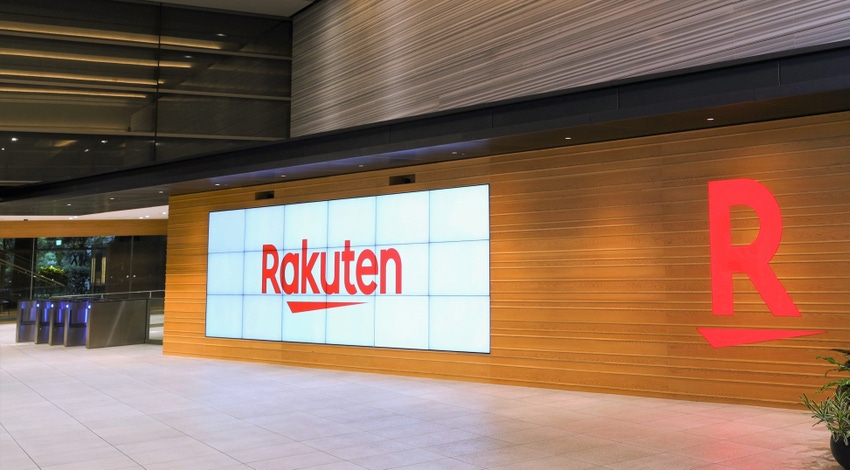Japan-based Rakuten Symphony doesn't want to play second fiddle in the European OpenRAN market.
February 14, 2022

Japan-based Rakuten Symphony doesn’t want to play second fiddle in the European OpenRAN market.
To that end, the company on Monday said it is growing its operations in Europe via new or expanded offices in the UK, Germany and France. It has also packaged-up its Rakuten Communications Platform (RCP) into an app store-style portal called Symworld, offering operators a suite of provisioning, automation, and operations software they can use to rapidly and cost-effectively deploy cloud-native networks at scale.
In the UK, Symphony is ramping up its R&D activity, which focuses on 4G and 5G OpenRAN software and hardware development and testing. The government has set a target of 35 percent of mobile network traffic being carried by open and interoperable RAN architecture by 2030, representing a potentially lucrative opportunity to get in on the ground floor.
In France, Symphony is ramping up its sales effort with an office in Paris led by Olivier Alluis, president of the company’s digital experience division. Supported by its existing team in Montpellier, the new office will be tasked with driving uptake of Symphony’s various products and solutions, including presumably Symworld.
Meanwhile in Germany, Symphony is growing its Dusseldorf office to support the work it is already doing in the country, which includes helping mobile operator 1&1 deploy its virtualised 5G network.
“Europe is a mature market for mobile network infrastructure and yet mobile network operators and governments are incredibly open to the opportunities OpenRAN technologies can bring to the region,” said Tareq Amin, CEO of Rakuten Symphony, in a statement. “We’re expanding our operations across Europe to strengthen our research and development capabilities and our commitment to the region. We will collaborate closely with European operators, vendors, governments and academic institutions to contribute to developing the region’s OpenRAN technologies, while working to realise our vision of providing a future-proof, cost-effective, cloud-based connectivity platform to transform the delivery of telecommunications services by mobile network operators.”
Symworld is the new name for that connectivity platform, which Symphony hopes will reel in the punters both in Europe and further afield. Symphony claims that its zero-touch provisioning capabilities reduce site commissioning times from weeks to minutes, helping operators lower capital costs by 40 percent. It also claims to cut network opex by 30 percent, and offers a 10-15x improvement on the time it takes to introduce new features.
“Telecom operators have a massive opportunity to transform into highly-efficient and flexible software-fuelled businesses,” said Amin, in a separate statement. “Symworld, the world’s first industrialised automation platform for service providers, will support this pursuit as we help guide new and existing network operators through an era of unprecedented change.”
The announcements came on the same day that Symphony’s parent Rakuten published full year and fourth quarter financials. Group revenue in the three months to 31 December increased by almost 16 percent year-on-year to JPY481.13 billion ($4.18 billion). Full-year revenue was up 15.5 percent to JPY1.68 trillion. Despite healthy topline growth, Rakuten is still racking up heavy losses due primarily to the heavy spending on its budding mobile business.
Its Q4 net loss narrowed slightly to JPY41.57 billion from JPY42.73 billion a year earlier. For the whole of 2021 though, net loss widened to JPY133.83 billion from JPY114.20 billion in 2020. Its mobile arm alone recorded an operating loss of JPY421.17 billion last year. However, as today’s announcements reiterate, Rakuten as a company is still firmly focused on the future. Understandably therefore, breaking even is still not a priority…yet.
About the Author(s)
You May Also Like








.png?width=300&auto=webp&quality=80&disable=upscale)


_1.jpg?width=300&auto=webp&quality=80&disable=upscale)


.png?width=800&auto=webp&quality=80&disable=upscale)